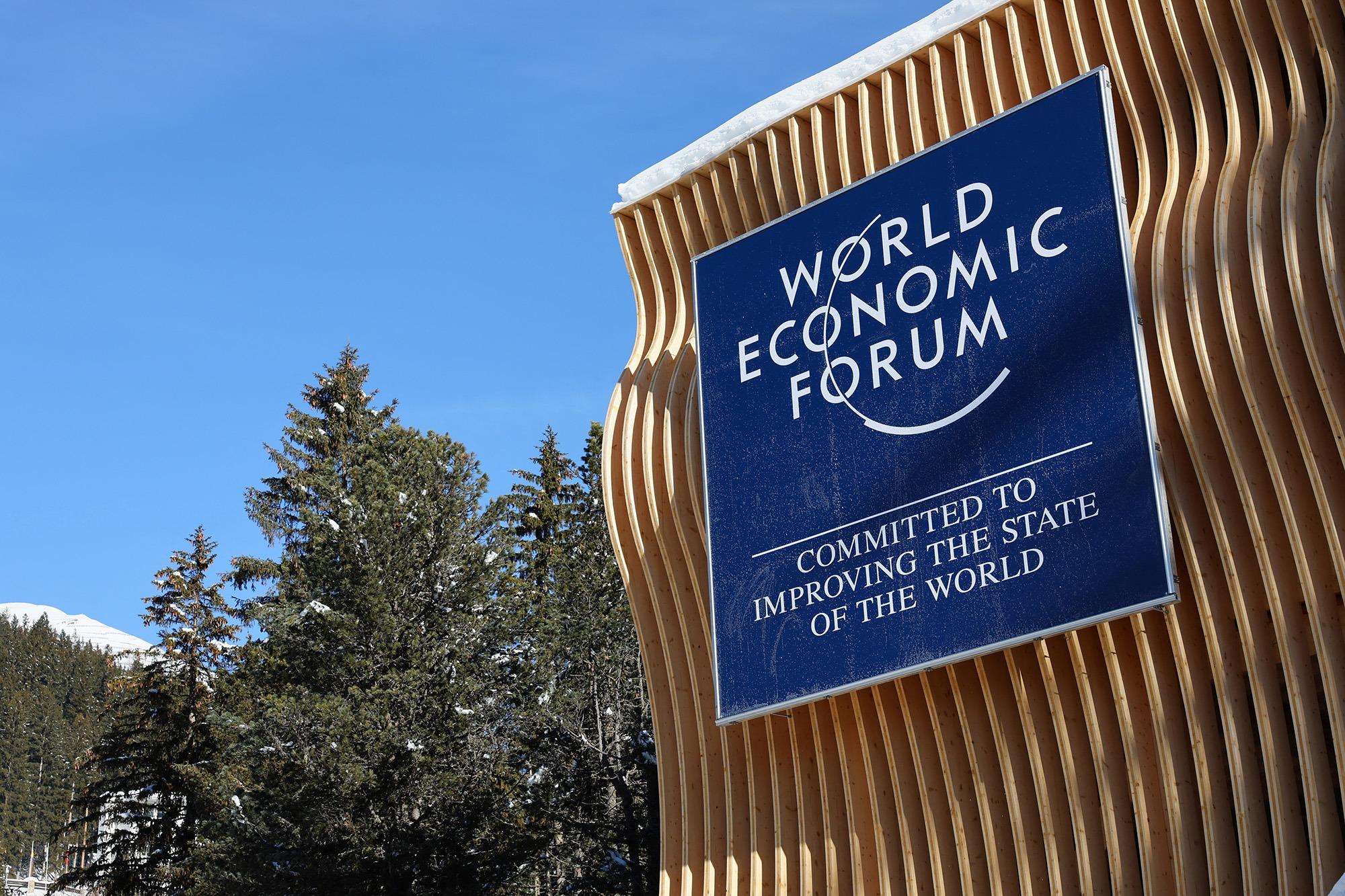 A logo is pictured at the Congress Center ahead of the annual meeting of the World Economic Forum (WEF) in Davos, Switzerland, Jan 14, 2024. (PHOTO / REUTERS)
A logo is pictured at the Congress Center ahead of the annual meeting of the World Economic Forum (WEF) in Davos, Switzerland, Jan 14, 2024. (PHOTO / REUTERS)
The 54th annual gathering of the World Economic Forum, which opened at the Swiss ski resort of Davos on Monday, provides another opportunity for more than 60 heads of state and government and some 800 chief executives, among a total of 2,800 participants, to discuss ways to deal with the many challenges the world is facing today.
That the five-day gathering "is taking place against the most complicated geopolitical and geoeconomic backdrop in decades", as WEF President Borge Brende put it, underscores how crucial it is that the participants engage in these discussions in good faith and with a sincere desire to work together in the spirit of the forum's theme of "rebuilding trust".
Premier Li Qiang, who is expected to deliver a key speech at the Davos meeting, will put forward China's solutions to many pressing global issues, including slower world economic growth.
The International Monetary Fund has forecast that global growth will slow from 3 percent in 2023 to 2.9 percent in 2024, well below the historical (2000-19) average of 3.8 percent. The subdued growth prospects are mainly due to geopolitical strife, tight financing conditions and the disruptive impact of artificial intelligence, according to a survey of top economists conducted ahead of the WEF meeting that was released on Monday.
China, which is pivoting from growth based on investment and real estate to one based on innovation, can contribute to rebuilding trust among nations because of its significant economic and trade strength and its role as a major engine for global growth, as Brende said in a recent interview.
China's GDP represented about 2 percent of the world's total in 1979 when the country first attended the annual WEF gathering. Today, it accounts for nearly 20 percent of the world's GDP. China has been a direct beneficiary of economic globalization and the mutual trust that trend embodied. Cherishing this trust, it is doing its best to reverse the trend of de-globalization and forge trust with its trade partners.
Decoupling, as advocated by the United States and some of its allies, in the name of "de-risking", is a politicized concept intended to fuel mistrust against those countries the US is at odds with for one reason or another.
Contrary to these US-led efforts, China is seeking to promote trade liberalization and keep the global industry and supply chains functioning smoothly. In doing so, it is not only striving to maintain its own development momentum but to continue to bring cooperation opportunities to other countries and give more impetus to the global recovery and growth.


